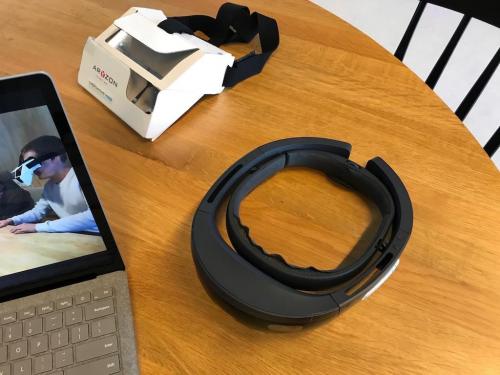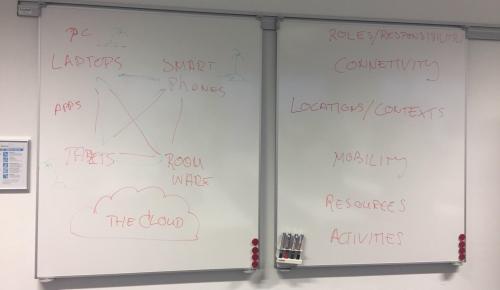A Cardboard Alternative to HoloLens
I attended the Augmented-Virtual-Mixed Reality Workshop hosted by LDE Centre of Education and Learning and the Leiden Centre for Innovation, where the Aryzon AR Cardboard Headset caught my attention. The Aryzon AR/MR Headset is an interesting alternative to the high-tech AR headsets. It is both available and affordable for average students, schools and universities. Like the Google Cardboard, it uses a smartphone for rendering and displaying virtual models. Different to Google's solution, the Aryzon Headset does not block the field of view.
At the Augmented-Virtual-Mixed Reality Workshop in Leiden we learned about different approaches and solutions for using this technology in higher education. It also hosted a marketplace for sharing ideas and solutions from research and the industry, where I met Ralph van der Meer from Breinwave. Ralph brought some Aryzon Headsets and a bunch of demos that showed possible interactions between HoloLens wearers and cardboard headset wearers. This allowed me to compare the Aryzon Headset directly to the HoloLens 1.

